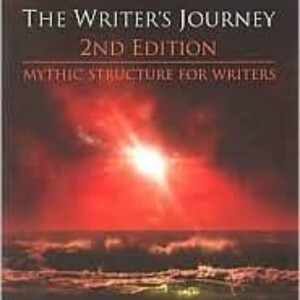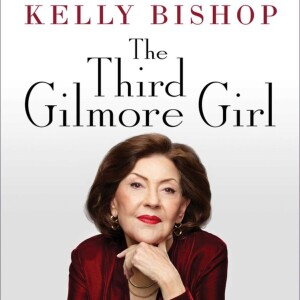Episodes

Thursday Jan 08, 2026
Thursday Jan 08, 2026
Chapter 1 What's The Devil in Winter
"The Devil in Winter" by Lisa Kleypas is a historical romance novel set in the Victorian era, centering around the shy and stuttering heiress, Amelia, who is desperate to escape a seemingly doomed future arranged by her family. She seeks the help of the infamous and brooding Viscount St. Vincent, known for his reckless behavior and tumultuous past. As they embark on a marriage of convenience, their relationship evolves from reluctant partnership to an intense and passionate romance, challenging both characters to confront their fears and desires while navigating societal expectations and personal traumas. The novel explores themes of love, redemption, and the transformative power of vulnerability.
Chapter 2 The Background of The Devil in Winter
"The Devil in Winter," published in 2006 by Lisa Kleypas, is set in the early 19th century Regency era in England, a time characterized by strict social hierarchies, rigid gender roles, and the importance of marriage for women. This period was marked by significant societal norms that dictated the behavior and expectations of different classes, especially concerning courtship and familial obligations. Kleypas’s intention was to blend romance with a touch of historical accuracy, exploring themes of personal agency and emotional resilience within the constraints of the era. Through the characters’ struggles, she highlights the desire for love and autonomy against the backdrop of societal expectations, appealing to contemporary readers who often seek empowerment in historical narratives.
Chapter 3 Quotes of The Devil in Winter
The Devil in Winter quotes as follows:
Here are ten memorable quotes from "The Devil in Winter" by Lisa Kleypas, which capture the essence of the characters and the romantic tension throughout the novel:
“You should not have to be a person you’re not. Just be yourself.”
“It’s not enough to simply survive. We must live.”
“You are my greatest temptation.”
“I’ve been waiting for you my whole life.”
"I have always thought of you, even when I was far away."
“In your eyes, I see my future.”
"Love is not a decision; it’s a feeling.”
“Your heart is safe with me."
“There’s strength in vulnerability.”
“You and I are meant to be together.”
These quotes reflect the themes of love, vulnerability, and self-discovery that are central to the story.
Book Summary Audio Bookey https://www.bookey.app/audiobook/the-devil-in-winter
Quotes https://www.bookey.app/book/the-devil-in-winter/quote
YouTube https://www.youtube.com/watch?v=VvOlhw0wRzM
Amazon https://www.amazon.com/Devil-Winter-Wallflowers-Book/dp/006056251X
Goodreads https://www.goodreads.com/book/show/114166.Devil_in_Winter

Monday Jul 21, 2025
Monday Jul 21, 2025
1 What's Tryst Six Venom
"Tryst Six Venom" by Penelope Douglas centers around a forbidden romance entwined with themes of revenge, betrayal, and the complexities of teenage relationships. The story follows the protagonist, a girl navigating her feelings for a charismatic yet troubled boy, amid a backdrop of a close-knit group of friends whose secrets and loyalties are continually tested. As tensions rise and past traumas resurface, the characters grapple with their desire for love while confronting the darker aspects of their bonds, ultimately exploring the intersections of trust, desire, and the quest for identity.
2 Key Concepts of Tryst Six Venom
In "Tryst Six Venom" by Penelope Douglas, the theme introduced in Chapter 1 revolves around desire, vulnerability, and the complexities of relationships. This theme is further explored in subsequent chapters, particularly in Chapter 3, where the dynamics between the characters intensify, revealing their hidden emotions and the struggles they face in expressing their true feelings. Additionally, Chapter 5 delves deeper into the consequences of their desires and the impact on their relationships, highlighting the ongoing tension between attraction and the fear of emotional exposure. Overall, these chapters collectively illustrate the evolving interplay of desire and vulnerability throughout the narrative.
3 In-Depth Chapter Analysis of Tryst Six Venom by Penelope Douglas
In "Tryst Six Venom" by Penelope Douglas, the chapters intricately weave themes of secrecy, betrayal, and the complexity of desire through the evolving relationships among the characters. For instance, in the early chapters, the protagonist, whose unnamed feelings toward her friend’s older brother evoke both longing and trepidation, highlights the theme of forbidden love. The tension between their interactions is palpable, revealing how past grievances and hidden truths shape their dynamic. The tumult in these early relationships not only sets the stage for emotional turmoil but also introduces the readers to the intricacies of their shared history—where secrets threaten to unravel the fragile bonds they possess.
As the narrative progresses, particularly in later chapters, the theme of self-discovery emerges alongside the exploration of loyalty and revenge. Instances of betrayal come to light, most notably through character choices that reveal their darker motives, leading to a climax filled with emotional confrontation. For example, in the penultimate chapters, the protagonist is forced to navigate her feelings amid revelations that challenge her sense of trust and identity. The characters' connections, fraught with tension and desire, culminate in a moment of reckoning that underscores the necessity of confronting the past to forge a path forward, illustrating Douglas’s deft handling of emotional complexity in adolescent relationships. Ultimately, the intertwining of these themes across the chapters highlights the nuanced interplay between love, loyalty, and the quest for personal truth.
Book Summary Audio Bookey https://www.bookey.app/audiobook/tryst-six-venom
Quotes https://www.bookey.app/book/tryst-six-venom/quote
Youtube https://www.youtube.com/watch?v=wNnfgC7q8XM
Amazon https://www.amazon.com/Tryst-Six-Venom-Penelope-Douglas-ebook/dp/B09418JQMK
Goodreads https://www.goodreads.com/book/show/54661258-tryst-six-venom

Friday Jul 18, 2025
Friday Jul 18, 2025
1 What's The Writers Journey
"The Writer's Journey" by Christopher Vogler explores the structure of storytelling through the lens of mythology and archetypal characters, drawing heavily on Joseph Campbell's "The Hero with a Thousand Faces." The book outlines the Hero's Journey framework, detailing stages such as the Call to Adventure, the Ordeals, and the Return, which are common in many narratives across cultures. Vogler emphasizes the importance of character archetypes, such as the Hero, Mentor, and Shadow, and how they contribute to a cohesive and engaging story. Overall, the book serves as a practical guide for writers, encouraging them to tap into universal themes and emotional truths that resonate with audiences.
2 Key Concepts of The Writers Journey
In "The Writer's Journey," Christopher Vogler discusses fundamental themes of myth and storytelling throughout the book, particularly in relation to the Hero's Journey framework. Chapter 1 introduces the concept of the Hero's Journey and the transformative experiences of the protagonist. Subsequent chapters, such as Chapter 2 ("The Hero"), Chapter 3 ("The Call to Adventure"), and Chapter 5 ("The Mentor"), further develop this theme by exploring the stages of the journey, the challenges faced, and the guidance received along the way. These chapters collectively reflect on the evolution of the hero and the universal patterns that underpin compelling narratives.
3 In-Depth Chapter Analysis of The Writers Journey by Christopher Vogler
In "The Writer's Journey: Mythic Structure for Writers," Christopher Vogler presents a comprehensive framework for storytelling based on Joseph Campbell’s concept of the Hero's Journey. One of the pivotal chapters is "The Call to Adventure," which signifies the moment when the hero is thrust into a new, challenging situation that disrupts their ordinary world. This chapter highlights the theme of transformation, as it initiates the hero’s path toward growth and self-discovery. For example, in the iconic story of "The Lion King," Simba receives his call to adventure through the death of his father, prompting him to confront his past and reclaim his rightful place as king.
Another key chapter is "The Road of Trials," which underscores the theme of resilience and the necessity of facing challenges in pursuit of goals. It details the hero's encounters with obstacles that test their resolve and character. Taking “The Lord of the Rings” as an example, Frodo Baggins encounters numerous trials, from facing the temptations of the One Ring to battling formidable foes. Each trial not only builds Frodo’s character but also reinforces the overarching narrative of friendship, sacrifice, and the struggle between good and evil. Together, these chapters illustrate how pivotal moments and trials contribute to the hero's journey and the universal themes that resonate with audiences.
Book Summary Audio Bookey https://www.bookey.app/audiobook/the-writers-journey
Quotes https://www.bookey.app/book/the-writers-journey/quote
Youtube https://www.youtube.com/watch?v=Ab6z57N6evA
Amazon https://www.amazon.com/Writers-Journey-Mythic-Structure-3rd/dp/193290736X
Goodreads https://www.goodreads.com/book/show/173302.The_Writers_Journey

Thursday Jul 17, 2025
Thursday Jul 17, 2025
1 What's The Third Gilmore Girl
"The Third Gilmore Girl" by Kelly Bishop explores the intricate dynamics of family, friendship, and the passage of time through the lens of the beloved characters from the "Gilmore Girls" series. As the narrative unfolds, it delves into the relationships between Lorelai, Rory, and Emily Gilmore, highlighting their personal growth, the challenges they face, and the enduring bonds that connect them. The story captures the humor and warmth of their interactions, reflecting on themes of generational differences, ambition, and the importance of community, all while maintaining the show's signature blend of wit and heartfelt emotion.
2 Key Concepts of The Third Gilmore Girl
In "The Third Gilmore Girl" by Kelly Bishop, the theme introduced in Chapter 1 revolves around the complexities of relationships and personal growth. Chapters that deeply explore this theme include Chapters 3 and 5, where the dynamics between the characters evolve as they confront their past and present choices, fostering a deeper understanding of themselves and each other. These chapters illustrate the intricacies of familial ties and friendships, which resonate with the initial thematic exploration, emphasizing the struggles and triumphs inherent in navigating life's relationships.
3 In-Depth Chapter Analysis of The Third Gilmore Girl by Kelly Bishop
"The Third Gilmore Girl" by Kelly Bishop explores themes of family, identity, and the complexities of female relationships. One significant chapter highlights the bond between the three generations of Gilmore women—Lorelai, Rory, and Emily—particularly in how their individual struggles and aspirations reflect their interconnectedness. For example, a pivotal moment occurs when Rory grapples with her career choices, prompting a heart-to-heart with Lorelai, who reveals her own sacrifices and dreams. This exchange not only reinforces the theme of generational influence but also illustrates the struggles women face in balancing personal ambitions with familial expectations.
Another notable chapter delves into Emily's past, providing deeper insights into her character and illustrating the theme of resilience and evolution in women's roles. Through flashbacks, readers learn about Emily’s experiences and how they shaped her relationship with Lorelai and Rory. The juxtaposition of her traditional values against Lorelai's modern approach to motherhood creates a rich tapestry of conflict and understanding. This chapter emphasizes the idea that while time may alter perspectives, the deep-rooted connections among the Gilmore women remain a cornerstone of their identities, ultimately reflecting the enduring bonds of family amidst change.
Book Summary Audio Bookey https://www.bookey.app/audiobook/the-third-gilmore-girl
Quotes https://www.bookey.app/book/the-third-gilmore-girl/quote
Youtube https://www.youtube.com/watch?v=FY2HVMNIu54&pp=0gcJCfwAo7VqN5tD
Amazon https://www.amazon.com/Third-Gilmore-Girl-Memoir/dp/1668023776
Goodreads https://www.goodreads.com/book/show/207298106-the-third-gilmore-girl

Wednesday Jul 16, 2025
Wednesday Jul 16, 2025
1 What's The Satanic Bible
"The Satanic Bible," written by Anton Szandor LaVey and published in 1969, serves as the foundational text for the Church of Satan and outlines its philosophy and beliefs. The overall theme centers around individualism, self-empowerment, and the rejection of conventional religious morals, promoting a worldview that embraces indulgence, personal responsibility, and skepticism toward traditional spirituality. LaVey articulates a set of rituals, symbols, and ethical guidelines that emphasize human desires and the pursuit of personal happiness, positioning Satan not as an entity to be worshipped but as a symbol of freedom and rebellion against societal norms.
2 Key Concepts of The Satanic Bible
In Chapter 1 of The Satanic Bible, Anton LaVey discusses the theme of individualism and self-empowerment. This theme resonates throughout various chapters in the book, particularly in Chapter 2 ("The Book of Lucifer"), where LaVey emphasizes the importance of personal freedom and self-identity. Additionally, Chapter 3 ("The Book of Belial") reinforces the idea of embracing one's desires and instincts as a means of asserting individual power, while Chapter 4 ("The Book of Leviathan") explores the concept of personal responsibility and the pursuit of one's own happiness, further aligning with the ideas presented in the opening chapter.
3 In-Depth Chapter Analysis of The Satanic Bible by Anton Szandor LaVey
"The Satanic Bible," authored by Anton Szandor LaVey, is structured into several key chapters, each reflecting the core theme of individualism and self-empowerment. The introductory chapter, "The Book of Satan," emphasizes LaVey's rejection of conventional religious morality. It outlines principles that advocate for indulgence in earthly desires rather than abstinence, asserting that humanity should embrace its primal instincts. For instance, the chapter critiques traditional religious constraints and argues that embracing one's desires leads to a more authentic life, a theme that resonates throughout the text.
Another pivotal section, "The Book of Lucifer," delves into the philosophy surrounding the concept of enlightenment and self-reliance. This chapter promotes the idea of personal responsibility and the pursuit of knowledge, showcasing how individuals can transcend societal limitations. LaVey famously posits that "knowledge is the ultimate power," urging readers to seek wisdom through experience rather than dogma. Such themes reinforce the inherent message of The Satanic Bible—that self-empowerment and the rejection of imposed moralities are crucial for personal growth and fulfillment. Together, these chapters encapsulate LaVey's vision of a world where individual will and expression are paramount.
Book Summary Audio Bookey https://www.bookey.app/audiobook/the-satanic-bible
Quotes https://www.bookey.app/book/the-satanic-bible/quote
Youtube https://www.youtube.com/watch?v=JPzK1HLC8GU&pp=0gcJCfwAo7VqN5tD
Amazon https://www.amazon.com/Satanic-Bible-Anton-Szandor-Lavey/dp/0380015390
Goodreads https://www.goodreads.com/book/show/82333.The_Satanic_Bible

Tuesday Jul 15, 2025
Tuesday Jul 15, 2025
1 What's Salvage the Bones
"Salvage the Bones" by Jesmyn Ward explores the themes of family, resilience, and survival in the face of hardship, set against the backdrop of Hurricane Katrina. The novel follows a poor African American family in rural Mississippi, particularly focusing on 15-year-old Esch, who navigates adolescence, love, and loss while grappling with the impending storm. The narrative highlights the struggles of poverty, the bonds of family, and the strength found in community, as the characters confront both personal and environmental challenges. Through vivid storytelling and rich imagery, Ward illustrates the emotional and physical landscapes that shape their lives and the deep connections that help them endure.
2 Key Concepts of Salvage the Bones
In "Salvage the Bones," the theme of survival amidst adversity, introduced in Chapter 1, resonates throughout the entire novel, particularly in Chapters 2, 4, and 7. In Chapter 2, the realities of life in a rural Mississippi community are explored as the Batiste family grapples with poverty and the impending threat of Hurricane Katrina. Chapter 4 further emphasizes the family's struggle for resilience as they confront the challenges of both nature and their personal circumstances. By Chapter 7, the narrative culminates in a powerful depiction of how the characters must unify and utilize their limited resources to confront the storm, showcasing their determination to survive against overwhelming odds. Each of these chapters reinforces the central theme of enduring hardship while clinging to hope and family.
3 In-Depth Chapter Analysis of Salvage the Bones by Jesmyn Ward
In "Salvage the Bones," Jesmyn Ward intricately weaves the theme of survival amid adversity through the narrative structure of the chapters, which unfold over a twelve-day period leading up to Hurricane Katrina. In the early chapters, such as the second chapter, the protagonist, Esch, grapples with her complex family dynamics and her deepening awareness of her own adolescent body, particularly through her interactions with her brothers and her reflections on pregnancy. This chapter highlights the theme of motherhood and the continuous cycle of life amidst hardship, emphasizing the resilience required to navigate both family struggles and the impending natural disaster. The palpable tension of the approaching hurricane foreshadows the challenges the family will face, serving as a metaphor for their internal and external conflicts.
As the narrative progresses to later chapters, particularly during and after the hurricane’s landfall, the theme of loss becomes increasingly prominent. In the climactic moments when the storm devastates their home, the family’s desperate fight for survival encapsulates the fragility of their existence. Chapters like the one detailing their attempt to rescue the family dog, China, mirror the deeper connections between survival, sacrifice, and love within the family unit. These instances reflect how their relationships are tested by external pressures but ultimately reveal the depth of their bonds. By the final chapters, the raw emotional landscape showcases how resilience manifests not only in the will to survive but also in the capacity to grieve and rebuild, framing the narrative’s exploration of the human spirit against overwhelming odds.
Book Summary Audio Bookey https://www.bookey.app/audiobook/salvage-the-bonesQuotes https://www.bookey.app/book/salvage-the-bones/quoteYoutube https://www.youtube.com/watch?v=307ftoh6JAMAmazon https://www.amazon.com/Salvage-Bones-Novel-Jesmyn-Ward/dp/1608196267Goodreads https://www.goodreads.com/book/show/10846336-salvage-the-bones

Monday Jul 14, 2025
Monday Jul 14, 2025
1 What's Hopeless
"Hopeless" by Colleen Hoover explores themes of love, trauma, and the journey toward healing. The story follows Sky, a teenager who has led a sheltered life but begins to uncover painful secrets from her past after meeting Dean, a mysterious boy who challenges her perceptions. As their relationship deepens, Sky confronts her history, grappling with issues of trust, identity, and the impact of family dynamics. The novel delves into the complexities of emotional scars and the transformative power of love and acceptance.
2 Key Concepts of Hopeless
In Colleen Hoover's "Hopeless," Chapter 1 introduces themes of trauma and emotional turmoil, particularly through the protagonist Sky's experiences. Subsequent chapters, such as Chapter 4, delve deeper into these themes as Sky confronts her past and the impacts of her upbringing on her relationships. Additionally, Chapter 9 explores Sky's struggle with trust and vulnerability, highlighting the ongoing effects of her trauma. These chapters collectively reflect the journey of healing and self-discovery initiated in Chapter 1, showcasing how past experiences shape the characters' present lives.
3 In-Depth Chapter Analysis of Hopeless by Colleen Hoover
In "Hopeless" by Colleen Hoover, the chapters intricately weave together themes of trauma, love, and self-discovery, primarily through the journey of the protagonist, Sky. For instance, early chapters introduce her struggle with the traumatic memories that shape her identity and perspectives about love, especially in the context of her relationship with Dean. The intense bond they share illuminates the theme of healing through connection, as Sky begins to confront her past and realize that love can be a source of strength rather than vulnerability.
As the narrative progresses, pivotal chapters reveal shocking truths about Sky's childhood and family dynamics, anchoring the theme of confronting one’s truth. For example, the revelation of her past not only provides a catalyst for her growth but also underscores the importance of facing hidden realities in order to forge meaningful relationships. Hoover effectively illustrates how the journey of self-acceptance and understanding one’s history can lead to a profound transformation, culminating in a love that is both tender and resilient, tying the narrative threads back to the central themes of healing and redemption.
Book Summary Audio Bookey https://www.bookey.app/audiobook/hopeless
Quotes https://www.bookey.app/book/hopeless/quote
Youtube https://www.youtube.com/watch?v=wkakEi9msWE
Amazon https://www.amazon.com/Hopeless-Colleen-Hoover/dp/147674355X
Goodreads https://www.goodreads.com/book/show/62967897-hopeless

Friday Jul 11, 2025
Friday Jul 11, 2025
1 What's Little Girl Lost
"Little Girl Lost" is an autobiographical account by actress Drew Barrymore that explores her tumultuous childhood and early career in Hollywood. The theme centers on the challenges of growing up in the spotlight, dealing with family dysfunction, and confronting personal demons, including substance abuse and the pressures of fame. Through candid anecdotes, Barrymore reflects on her struggles with self-identity, the consequences of her rebellious behavior, and her journey to recovery and empowerment, ultimately conveying a message of hope and resilience in overcoming adversity.
2 Key Concepts of Little Girl Lost
In "Little Girl Lost," the theme introduced in Chapter 1 revolves around the struggles of childhood innocence and the harsh realities of growing up. This theme resonates throughout several chapters, particularly in Chapter 3, where the protagonist faces challenges that threaten her sense of safety and security. Additionally, Chapter 5 explores the impact of external influences on her development, further emphasizing the tension between innocence and the complexities of life. Together, these chapters deepen the exploration of how the protagonist navigates her journey from innocence into a more complicated world.
3 In-Depth Chapter Analysis of Little Girl Lost by Drew Barrymore
In "Little Girl Lost," Drew Barrymore recounts her tumultuous childhood and rise to fame, with a keen focus on the themes of identity, resilience, and the quest for belonging. In Chapter 2, Barrymore vividly describes her early experiences in the Hollywood limelight, emphasizing the conflict between her public persona and her private struggles. Her feelings of isolation amidst the chaos of stardom highlight the theme of identity, as she grappled with being labeled a child star while yearning for genuine connection. For instance, she recounts how fame brought her not friends, but rather a sense of alienation, thus illustrating the complexities of growing up in the spotlight.
As the narrative progresses to Chapter 7, Barrymore delves into her battle with addiction, further bolstering the theme of resilience. Here, she candidly shares moments of vulnerability and desperation, such as her experiences in rehab and the painful realizations of her self-destructive behavior. This chapter serves as a turning point, where her acknowledgment of her struggles showcases her strength and determination to reclaim her life. Her journey encapsulates the transformative power of confronting one's demons and the pursuit of self-acceptance, reinforcing Barrymore's ultimate message about the importance of resilience in the face of adversity. Through these chapters, Barrymore weaves a narrative that is at once personal and universal, inviting readers to reflect on their own paths to self-discovery.
Book Summary Audio Bookey https://www.bookey.app/audiobook/little-girl-lost
Quotes https://www.bookey.app/quote-book/little-girl-lost
Youtube https://www.youtube.com/watch?v=2gMSRBHhSys
Amazon https://www.amazon.com/Little-Girl-Lost-Drew-Barrymore/dp/0671689231
Goodreads https://www.goodreads.com/book/show/58658.Little_Girl_Lost

Thursday Jul 10, 2025
Thursday Jul 10, 2025
1 What's Friday Night Lights
"Friday Night Lights" by H.G. Bissinger explores the intense cultural significance of high school football in the small Texas town of Odessa, focusing on the 1988 season of the Permian High School Panthers. The book delves into the societal pressures, community pride, and personal sacrifices tied to the team's pursuit of a state championship. Bissinger examines how the sport shapes the identities and futures of the athletes, reflecting broader themes of ambition, obsession, and the American Dream. Through vivid storytelling and in-depth character studies, the narrative reveals the complexities of life in Odessa, where the lines between sport and life become increasingly blurred.
2 Key Concepts of Friday Night Lights
In "Friday Night Lights," the theme of community and the impact of football on identity, which is introduced in Chapter 1, resonates throughout several subsequent chapters. For example, Chapter 3 delves into the town of Odessa's societal dynamics and how football serves as a unifying force, shaping the community's values and priorities. Similarly, Chapter 5 explores the personal struggles of the players, highlighting how their involvement in football intersects with their identities and aspirations, further reinforcing the theme of the sport as a defining element of community life. Overall, these chapters collectively illustrate the profound connection between the town's identity and the high school football culture.
3 In-Depth Chapter Analysis of Friday Night Lights by H.G. Bissinger
In "Friday Night Lights," H.G. Bissinger explores themes of community, identity, and the pressures of high school athletics through the experiences of the Permian Panthers football team in Odessa, Texas. In Chapter 1, titled "The Last Game," Bissinger introduces the intense atmosphere surrounding high school football in a small town, illustrating how the sport becomes a focal point for community identity. The chapter details the overwhelming expectations placed on the young athletes, particularly quarterback Mike Winchell, as they are celebrated as local heroes. This sets the stage for the recurring theme of how football shapes the boys' identities and the community's values, putting immense pressure on them to succeed.
In Chapter 5, "The Uniform," Bissinger delves deeper into the symbolism of the football uniform, which represents not only team identity but also communal pride and individual aspirations. As the players don their uniforms, they are imbued with a sense of importance and purpose, embodying the hopes and dreams of Odessa. Bissinger highlights the contrast between the glamorous perception of football and the harsh realities faced by the players, such as injuries and personal struggles. This chapter emphasizes the theme of the pursuit of glory, as players grapple with the burden of expectations while navigating their adolescent challenges, revealing the complex relationship between sports, identity, and community in their lives.
Book Summary Audio Bookey https://www.bookey.app/audiobook/friday-night-lights
Quotes https://www.bookey.app/book/friday-night-lights/quote
Youtube https://www.youtube.com/watch?v=JsxfzvN0tdI
Amazon https://www.amazon.com/Friday-Night-Lights-Town-Dream/dp/0060974060
Goodreads https://www.goodreads.com/book/show/85431.Friday_Night_Lights

Wednesday Jul 09, 2025
Wednesday Jul 09, 2025
1 What's How to Stay in Love
In "How to Stay in Love," James J. Sexton delves into the complexities of maintaining lasting relationships, drawing on his experiences as a divorce attorney. The book emphasizes the significance of communication, commitment, and personal responsibility in nurturing love over time. Sexton offers practical advice and insights into common pitfalls couples face, urging them to prioritize connection and understanding amidst challenges. Ultimately, the work advocates for a proactive approach to love, encouraging readers to actively cultivate their relationships rather than take them for granted.
2 Key Concepts of How to Stay in Love
In "How to Stay in Love," Chapter 1 introduces the theme of nurturing a lasting relationship through intentionality and communication. Subsequent chapters, such as Chapter 3, which focuses on the importance of quality time, and Chapter 5, which emphasizes open dialogue, directly relate to this theme by providing actionable insights on how to strengthen and maintain emotional connections. These chapters build on the foundational ideas presented in Chapter 1, illustrating practical ways couples can actively engage in sustaining their love over time.
3 In-Depth Chapter Analysis of How to Stay in Love by James J. Sexton
In "How to Stay in Love" by James J. Sexton, the chapters are intricately woven to explore the complexities of love and the vital role of commitment in sustaining relationships. One notable chapter focuses on the concept of "Expectations," where Sexton emphasizes the importance of aligning personal goals and relationship ideals between partners. He illustrates this by recounting real-life anecdotes that highlight misunderstandings stemming from differing expectations, showcasing how clear communication can fortify a couple's bond.
Another significant chapter delves into the theme of "Forgiveness." Sexton discusses how harboring resentment can erode love over time, and he provides practical strategies for couples to navigate conflicts healthily. By sharing stories of couples who successfully navigated challenges through forgiveness, he reinforces the idea that love requires an ongoing effort to empathize and let go of past grievances. Overall, Sexton ties these themes together by advocating for active engagement and conscious choices, ultimately underscoring that love is not merely a feeling but a continuous commitment to understanding, support, and growth within the relationship.
Book Summary Audio Bookey https://www.bookey.app/audiobook/how-to-stay-in-love
Youtube https://www.youtube.com/watch?v=2x7UIoOgjjE
Amazon https://www.amazon.com/How-Stay-Love-Divorce-Together-ebook/dp/B075QJ7JLB
Goodreads https://www.goodreads.com/book/show/45892364-if-you-re-in-my-office-it-s-already-too-late








